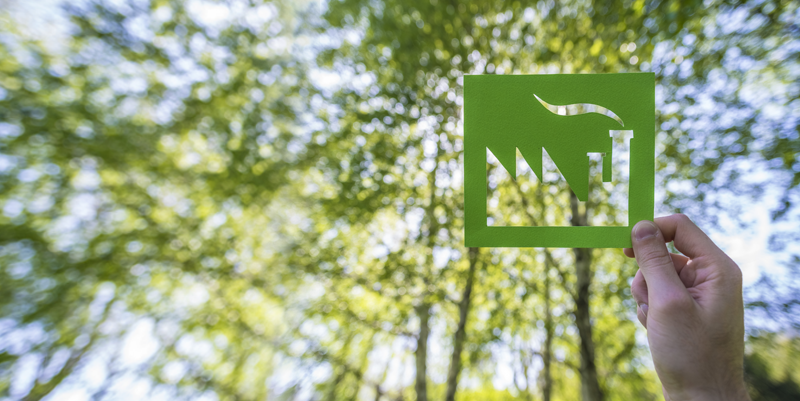
November 16 2021
Is preserving the planet in the face of human activity a duty or a choice? It’s a little bit of both: it is a dutiful choice.
Discussing which words best describe the level of respect we show for the environment is more than an intellectual exercise. It is about understanding and giving meaning to eco-responsibility.
A choice among several options
The Italian verb scegliere (to choose) is well suited to the language of sustainability. From the Latin ex-eligere, which literally means something to be selected from among several possibilities, it places sustainability firmly in the realm of free will. Even among those who feel unable to renounce old-fashioned industrial production, choice is unequivocally associated with responsibility and to the possibility of opting for a different path: polluting then becomes a choice, which in itself makes it seem a less valid choice when compared with the option of producing at zero impact. English is also persuasive in this sense: to choose is a verb that indicates the preference of one possibility over several others available; choice, too (although its origins are different from choose) indicates the possibility of selecting one option among others.
It all comes down to a sense of responsibility, another word that forces us to confront our own ethical standards because it literally means the ability to respond. Put simply, protecting the Earth means choosing the best possible option, since the aim is to secure the future for the next generation and beyond.
Low-impact industrial production, as we said, is “a dutiful choice”, as is sustainability, because if we care about the future of our children, our grandchildren and great-grandchildren, of the living world, then the best possible choice is to stop pollution.
The alliance of new and old mindsets for the future
A change of approach is always a challenge and is best executed at a higher level than that of the individual or group, however influential or powerful they may be. Dominant thinking can be changed given the option of a great alternative, a collective consensus that transcends common logic. This is precisely how we began to develop, design and build machines for the production of the Tissue products we know today, which themselves bore no relation to existing solutions at the time; minds old and new came together to change the way we think. And these technical solutions have, in turn, enabled us to start producing in an increasingly sustainable way, to redefine the life cycle of the machines themselves, to make work safer for those who run the lines, to give value to waste, to re-use energy, to fill shelves with products that are healthy, safe and respectful of water, land and air.
We can think outside the box only if we are supported by in-depth technical knowledge, possessed by those young or radical enough to disregard current practices and do what was previously considered impossible.
This is simple in theory, but in the harsh reality of the production plant, may appear impossible in the eyes of the majority. Hierarchy is what tends to count in the factory; thinking differently challenges the status quo, and being seduced by “novelties” can suggest weakness and result in loss of status. All this may or may not be true.
If the companies in the iT’s Tissue network are at the forefront of clean Tissue production today, they owe it the choice to make their production plants places where the mentality was open, flexible and willing to challenge itself, repeatedly. If today there are Tissue producers who revolutionize the market with sustainable products, pleasant workplaces, emissions close to zero, and reduced environmental impacts even within the microenvironment of the plant itself, it is thanks to the fact that among the old, the young, producers and consumers, a conscious alliance was built that spurred everyone to take a giant leap. And behind them were those who developed and fine-tuned their technology so that they could realize their collective, responsible ambitions. They are sons, daughters, fathers, brothers, mothers, sisters; and they work at ACelli, E80, Futura, Gambini, Körber, Omet, PCMC, Pulsar, Recard, TMC, Toscotec: people who take responsibility seriously.